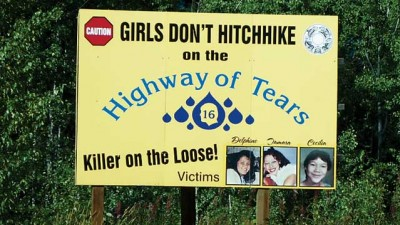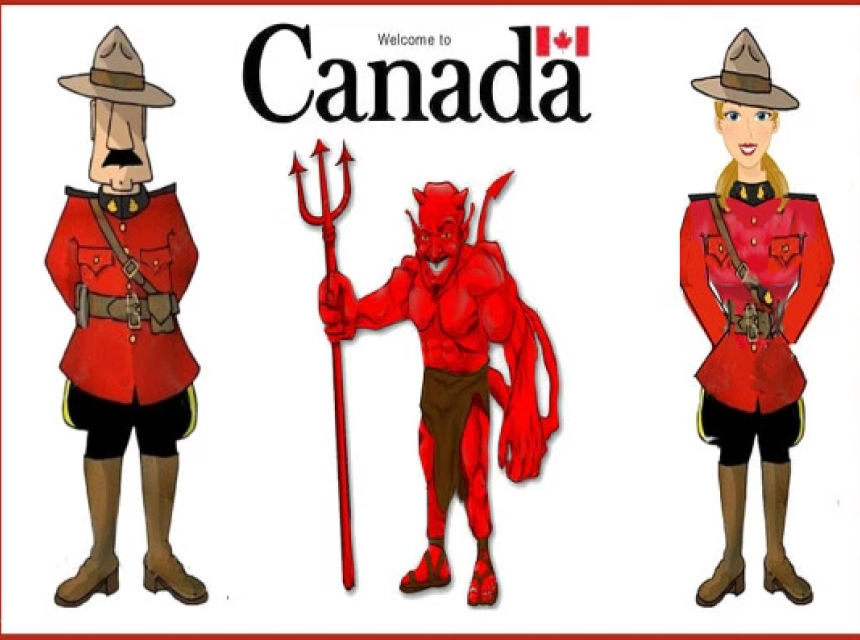Missing People, Fake Inquiries and the China Connection: What Price this Profit?
by Kevin D. Annett
Missing People, Fake Inquiries and the China Connection: What Price this Profit?
by Kevin D. Annett
Our women and children have been going missing for centuries. It's called genocide. - Wilf Price, Haida Nation, 2011
Charging somebody with murder out here is like handing out speeding tickets at the Indy 500. - Captain Willard, Apocalypse Now
Marion Buller is accustomed to being a token, I suppose, but even her flabby grimace for the TV cameras couldn't mask the fear in her eyes this past week. An unusually daring Canadian reporter had just asked her why after nearly two years her $64 million "Missing and Murdered Indigenous Women" inquiry has yet to uncover a single body or a genuine lead.
Well, we're not meant to, Marion might have frankly replied, if she hadn't first learned the score as a sitting ab-original judge on Canada's west coast, a chief killing ground of Indians. But Marion is an inside player, and she told the reporter that, you know, these things take time.
Fogging a crime is no doubt a time-consuming activity, especially when the criminals aren't cooperating in the cover-up. The RCMP officers and their contract killers who routinely shove native women in the ground have been oddly unforthcoming. Equally mute are the Chinese resource conmpanies that are funding the killings and the ethnic cleansing of northern British Columbia's aboriginal heart land. Of course, Marion Buller isn't asking any of those folks anything, presumably because she doesn't relish taking up permanent residence in the lower reaches of Burrard Inlet.
Life is never easy for a paid minion.
In truth, the killers have their hands full these days keeping Beijing satisfied. China's direct investment in British Columbia's resources and infrastructure has more than quadrupled since 2002, and the three biggest Chinese oil companies (PetroChina, Sinepec and Nexen) have until the spring of 2020 to sign contracts to secure B.C.'s vast Liquid Natural Gas (LNG) cornucopia. Unfortunately for the foreign devils, barely a tenth of the aboriginal nations that occupy these lands have shown a willingness to make such deals. And China, as we know, has a special knack for dealing with opposition.
Irene Mack, a freelance journalist near Smithers, has spent years documenting where aboriginal people go missing. According to her research, the heaviest concentration of disappearances is in the LNG - rich regions of the province.
"It's undeniable when you map this thing. The three main LNG pipelines run straight through the Highway of Tears, from west to east through the biggest killing zones. Pacific Northern Gas Company, Prince Rupert Gas Transportation and West Coast Gas Transportation connect the coastal ports to Tumbler Creek and Fort St. John. All of it is on lands still occupied by native groups that have resisted signing deals with the companies."
And to quote a local white politician from the Terrace region,
"We've been telling the Mounties for years that the disappearances of the native families are targeted killings by professionals. In the Carrier-Sekani region it's common place that anyone who speaks out against the backroom corporate deals with the Chinese gets a one way trip to the lake. But I stopped going to the Mounties when I realized they were the ones taking people to the lake."
Significantly, one of the first murdered native women to make the headlines, Wendy Poole of Moberley Lake, was the daughter of political activist Chief Art Napolean who led the fight to stop the surrender of his Saulteaux Cree lands to multinationals. Wendy Poole's body was found dismembered and missing body parts and organs. The RCMP refused to investigate her death.
Wendy's organs were missing for a reason. For the profit-led assault that killed her also involves the Chinese military: specifically, the same Generals who operate China's infamous organ-trafficking industry and have exterminated large swaths of China's own indigenous tribes, the Uyghur Muslims.
One of the most notorious of these officers, former Chinese security chief General Zhou Yongkang, is a major share holder in the hundreds of army-run hospitals across China where prisoners and political dissidents are killed and their organs transplanted into paying recipients. This same consortium of hospitals is now investing heavily in the British Columbia retirement home and health care industries, led by the Beijing-based Anbang Insurance Group.
The holding company of this entire operation, Cedar Tree Investments, owns big sections of downtown Vancouver and is described by one business journalist as "a thinly cloaked Triad (Chinese Mafia) operation that is grabbing up real estate and LNG deposits all over the province and especially up north."
To say that the British Columbia and federal governments are holding the coats of these criminal conglomerates is to understate things. Prime Minister Trudeau just recently lifted restrictions on Chinese takeover investment in the health care field, while Bejing operates "special advisory groups" directly out of B.C. Premier Christy Clark's government office. Clark is even jokingly but not inaccurately referred to by one Chinese lobbyist as "our local office manager".
Over forty years ago when I first learned of how easily people go missing in Vancouver, a worldly-wise TV journalist named Jack Webster warned me, "Don't ever expect to find out who's responsible because nobody wants you to know". Jack might have added, "especially the rich boys who are responsible."
General Zhou Yongkang and his friends need have no such fear. Canada's latest whitewash of its own domestic war crimes known as the Missing Womens Inquiry is ensuring that no names will ever be named and no mass grave sites ever unearthed. And Canadians, with their peculiar talent to blithely look past the evidence of their own backyard malfeasance, are giving their usual blessing to the whole charade.
Business is business, after all.











